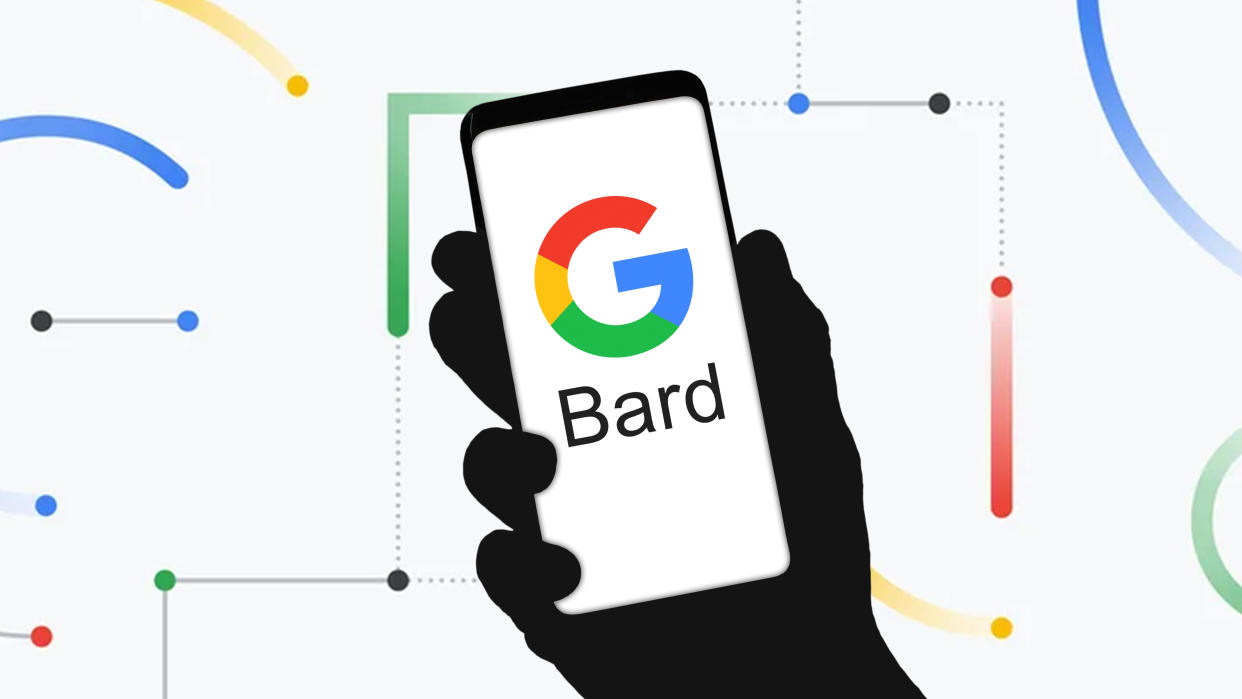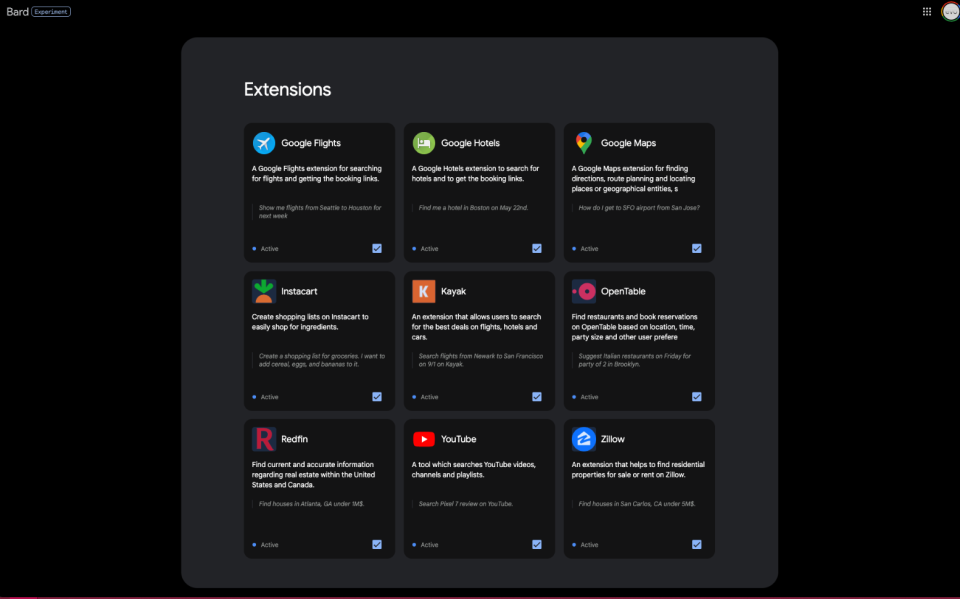Google Bard Extensions are bringing AI chatbot to YouTube, Gmail, Zillow and more

Google's ChatGPT competitor, Bard, could soon be directly integrated into its host of tools like Maps, YouTube and Gmail, bringing the power of its AI chatbot to the apps you use every day. These Bard Extensions, which Google initially announced at Google I/O, could also communicate and perform tasks with third-party services like Adobe, Instacart and Zillow, similar to ChatGPT's plugins.
The team at 9to5Google were able to enable an "early preview" of Bard extensions, giving us our first look at what to expect. The preview showed how these extensions will appear in Bard's web app, but though 9to5 Google was able to access the UI, "the extensions themselves don't seem to work" at this time. This isn't particularly surprising, given that Google's likely still laying the groundwork to eventually enable its AI-powered integrations.
What it did reveal, however, is what apps Bard Extensions could have cross-functionality with at launch. There may be as many as nine of these Extensions: Google Flights, Google Hotels, Google Maps, Instacart, Kayak, OpenTable, Redfin, YouTube and Zillow.

Users will be able to enable or disable particular services from a new Extensions menu, which is accessible through a puzzle-piece icon, according to 9to5Google. It'll also include suggestions for how best to use Bard Extension, with examples like “Find houses in Atlanta, GA under 1M$.”
The outlet also uncovered signs of Google preparing its previously announced Workspace extension for Bard. Prompts in the preview included text such as "Link apps like Docs, Drive, and Gmail" and "Bard and Google Workspace will share data with each other to complete your requests. You can unlink them at any time in Extensions settings." So it appears Google's AI-powered chatbot could soon gain access to your Google Docs, Drive and Gmail.
Still unclear, though, is how exactly these extensions will integrate with Bard and when we can expect to get our hands on them. Whether Google will open its chatbot for anyone to develop an extension also remains a mystery. But it's apparent Google is hard at work behind the scenes bringing its AI-powered chatbot up to speed with ChatGPT.
Taking the AI fight to ChatGPT
Google first announced the planned integration of Bard Extensions at its May showcase, but we've heard few details since about what that would entail. Google's vice president and general manager for Google Assistant and Bard, Sissie Hsiao, laid out the company's ambitions in a blog post, saying:
"Looking ahead, we’ll introduce new ways to fuel your imagination and curiosity by integrating the capabilities of Google apps and services you may already use — Docs, Drive, Gmail, Maps and others — right into the Bard experience. And of course, you’ll always be in control of your privacy settings when deciding how you want to use these tools and extensions. Bard will also be able to tap into all kinds of services from across the web, with extensions from outside partners, to let you do things never before possible."
At I/O, Google previewed the feature and revealed some of these initial outside partners, including Adobe. Hsiao said integration with Adobe Firefly would debut "in the coming months," but Google has made no mention of it since.
Meanwhile, ChatGPT has been steadily rolling out plug-ins that allow a range of websites to call on ChatGPT to answer questions and generate responses. We tested out a ton and found some of the best ChatGPT plug-ins, though the unfortunate caveat is you'll need to break out your wallet for the $20-a-month ChatGPT Plus subscription costs to access them.
That's where Google could really come out ahead if its Bard Extensions come to the apps we use every day — and without a subscription fee. We're excited to see how well the extensions perform whenever they roll out and whether it'll be enough to turn Bard into a more useful tool in the fast-paced world of AI-powered chatbots.

